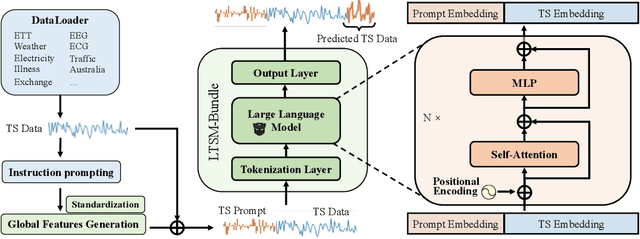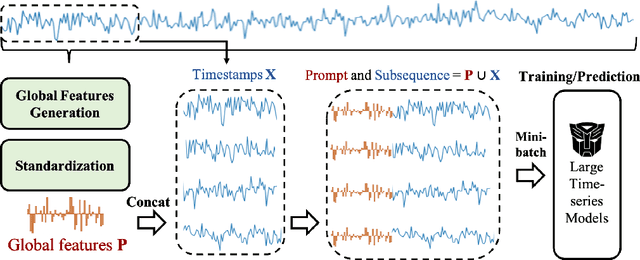Understanding Different Design Choices in Training Large Time Series Models
Paper and Code
Jun 20, 2024



Inspired by Large Language Models (LLMs), Time Series Forecasting (TSF), a long-standing task in time series analysis, is undergoing a transition towards Large Time Series Models (LTSMs), aiming to train universal transformer-based models for TSF. However, training LTSMs on heterogeneous time series data poses unique challenges, including diverse frequencies, dimensions, and patterns across datasets. Recent endeavors have studied and evaluated various design choices aimed at enhancing LTSM training and generalization capabilities, spanning pre-processing techniques, model configurations, and dataset configurations. In this work, we comprehensively analyze these design choices and aim to identify the best practices for training LTSM. Moreover, we propose \emph{time series prompt}, a novel statistical prompting strategy tailored to time series data. Furthermore, based on the observations in our analysis, we introduce \texttt{LTSM-bundle}, which bundles the best design choices we have identified. Empirical results demonstrate that \texttt{LTSM-bundle} achieves superior zero-shot and few-shot performances compared to state-of-the-art LSTMs and traditional TSF methods on benchmark datasets.
 Add to Chrome
Add to Chrome Add to Firefox
Add to Firefox Add to Edge
Add to Edge